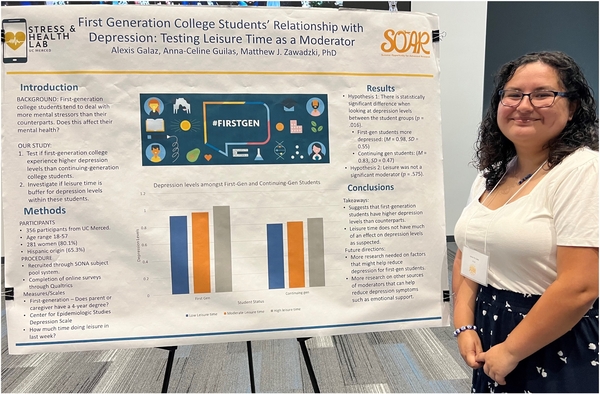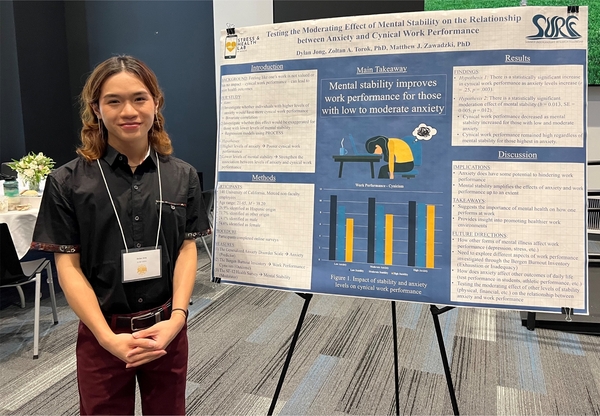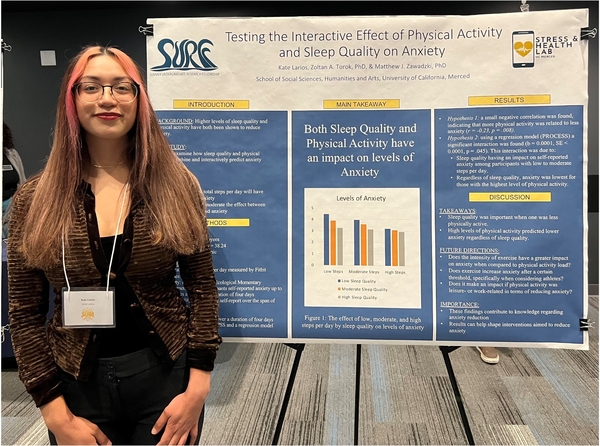
First-generation college students tend to struggle more with mental health than their counterparts. Alexis tested if first-generation college students deal with higher depression levels when compared to their counterparts and then tested to see if leisure time would buffer these negative effects. Although she confirmed her hypothesis that first-generation students had higher levels of depression, leisure time was not a significant moderator. More research is needed on resources available to first-generation to help them cope with mental health issues.

Dylan presented his poster on what makes a good worker. He found that cynical work performance decreased as mental stability increased, but only for those with low to moderate anxiety levels; those with high anxiety had the same level of cynical work performance regardless of any other factor.

Both exercise and better sleep tend to be correlated with a decrease in anxiety, yet it is not clear how these two factors interact. Kate found that sleep quality was more strongly correlated with lower anxiety among those with low and moderate physical activity levels, but that anxiety for low for those highly physically active regardless of sleep quality. Results indicate both exercise and sleep are important for mental health.

Rumination is known to be a very common attribute of students on college campuses. Isabel investigated the relationship between rumination and depression, with a specific focus on how first-generation students might be especially prone to the negative effects of rumination. Isabel found that although there was a positive relationship between rumination and symptoms of depression, first-generation status did not moderate this relationship indicating rumination was a risk factor for depression for all students.


